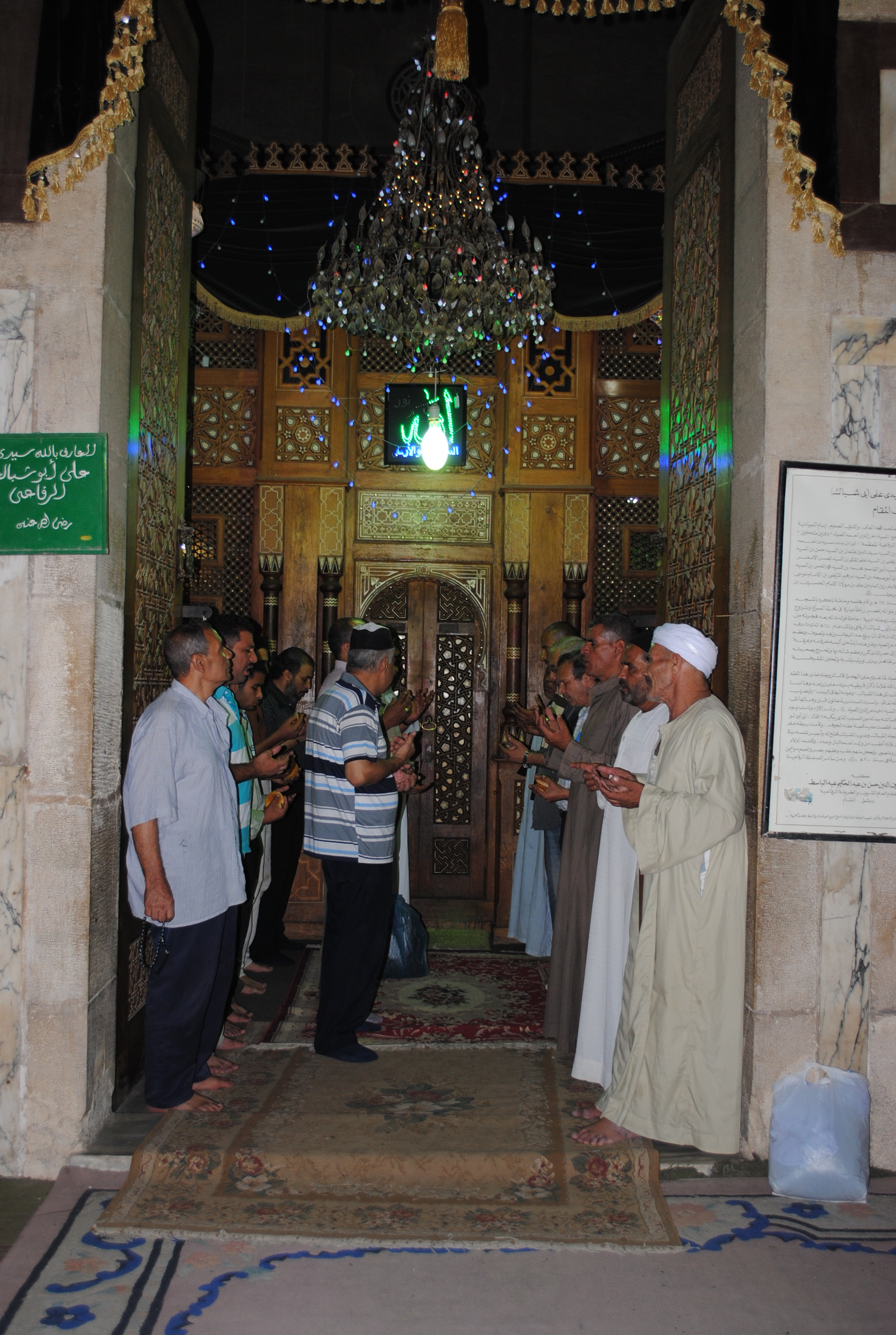There are not many politicians, scientists or revered thinkers who are remembered in the collective Egyptian memory. The reputations of certain sheikhs or waliyys, however, have survived through generations and extraordinary blessings and miracles are attributed to them.
Karamat, or miracles, are extraordinary acts that are believed to be performed only by waliyys. A waliyy is a righteous Muslim man, known for his piety, devoutness and closeness to Allah. Many Sufis and other Egyptians believe in the existence of karamat, and many stories are told of otherwise inexplicable phenomena.
Karamat are not just mystical things that happened in the past; many people believe they still happen today. A contemporary Sufi Sheikh, Sheikh Ahmed Radwan, who lived in Luxor and died in 1967, was known for his vast faith and humility. Immensely popular, he had a huge reputation for performing karamat. Detailed descriptions of the miracles attributed to him are shared among the younger generations, like the one-hour pilgrimage of his soul to the Kaba’a in Mecca while he sat among his people in Luxor, or how he used to read people’s thoughts and tell them what was on their minds.
Sheikh Ahmed Radwan was not just revered by the people of Luxor; there are many stories about high ranking officers and ministers who sought his blessing. Former Egyptian President Gamal Abdul-Nasser was reportedly one of the Sheikh’s admirers, and often asked for his advice and blessing. When Sheikh Radwan fell ill, a special military plane transported him from Luxor and he received the best possible care in a Cairo military hospital.
Another Sheikh from Luxor, Sheikh El-Tayeb, is known for having performed many karamat. An often-mentioned story tells the tale of how he once washed a tomato after reading special spells over it and handed it to a man who had been unable to father children. The Sheikh told the man to eat the tomato and his wife went on to have four children.
The miracles of old Egyptian waliyys include Sheikh El-Demerdash, who lived in Cairo and was renowned for being able to deal with jinn, or ghosts, and Sheikh Sayed El-Badawy who facilitated, with his miraculous power, the escape of the Egyptian prisoners captured by the French Crusaders in Tanta. Sufism and believing in karamat are significant Egyptian characteristics that have become an integral part of Egyptian culture through the ages.
“Karamat are real and more evident than the moon and stars at night,” said Sheikh Hassan Rashwan, Head of the Sufi Refaei order in Luxor. He suggested the reason some people deny the existence of karamat is only because they have not experienced them.
Because the stories about waliyys’ karamat and blessings are passed down from one generation to another, their prestige and sanctity is prominent for many Egyptians. Many people visit waliyys’ tombs to ask for their blessing, and special Sufi rituals like hadra are held inside waliyys’ shrines to ask for blessings and intercession.
During hadra, Sufis stand side by side in two rows facing each other, chanting rhyming verses of dhikr, short sentences glorifying Allah and the waliyys. The devout sway their heads back and forth with their eyes closed as their pronunciation of the verses expresses the highest form of reverence and dedication, aiming to please both Allah and the waliyys.
After hadra, the Sufi stands next to the shrine for a few moments, calling on the waliyy’s spirit, hoping to get his assistance to fulfill his private personal needs. “I ask Allah for all my needs, but there is no place more sacred to call on Allah than at the grave of his truest believers, his waliyys,” said one of the Sufis.
“People resort to the compelling power of their waliyys, represented in karamat, to overcome the oppression and injustice they witness in their normal life,” said Mohammed Salah, Sociology professor at Cairo University. He said that karamat do exist and are mentioned in Quran, but ignorance, poverty and injustice drive people to exaggerate the trust of their impact, and resort to seeking support and help from the waliyys even after their death.




